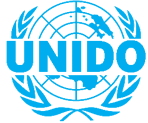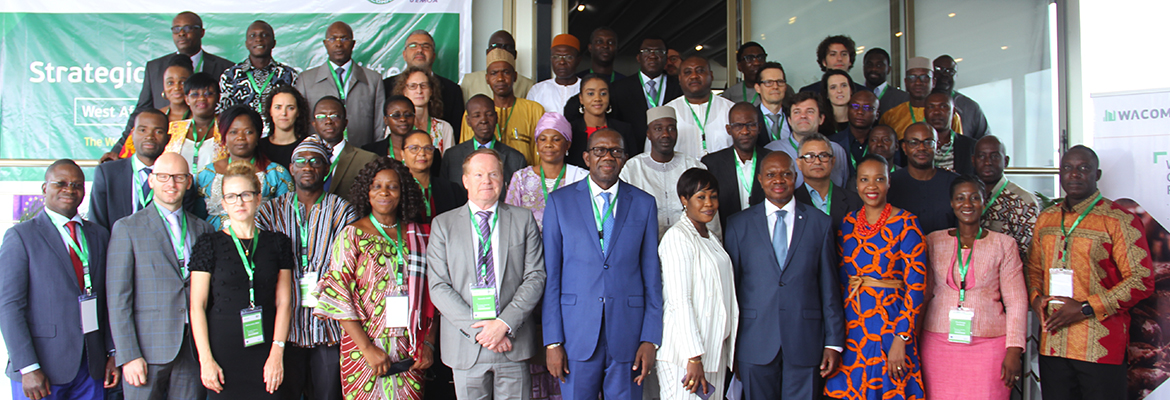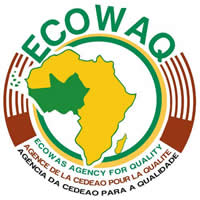





The West Africa Competitiveness Programme (WACOMP) organized the second meeting of its Steering Committee in Abuja, Nigeria. The Technical Committee held on 29th October under the co-chairmanship of Mr N'Fally Sano, Director of the Private Sector at ECOWAS Commission, and Ms Inga Staphanozicw, Program Manager at the EU Delegation to Nigeria and ECOWAS. It allowed the representatives of the ECOWAS Commission, the European Union (EU), UNIDO and the International Trade Center (ITC) to prepare the Strategic Steering Committee meeting held October 30th and 31st , 2019.
The Strategic Steering Committee meeting was co-chaired by Mr Mamadou Traoré, ECOWAS Commissioner for Industry and Private Sector Promotion, and Mr Kurt Kornelis, Head of Cooperation at the EU Delegation to Nigeria and ECOWAS. It also registered the participation of representatives of national and regional programs (including UNIDO and ITC), the European Union and technical directorates of the ECOWAS Commission, under the coordination of Mr. Kola Sofola, Principal Program Officer for Multilateral Trade at ECOWAS Commission.
Participants reviewed the state of implementation of the different components of WACOMP and discussed coherence of actions and complementarity between national and regional components. Participants also took the opportunity of the meeting to conduct a peer review and experience sharing on the implementation of WACOMP.
As a reminder, the EU-funded WACOMP of € 120 million, implemented with the technical support of ITC and UNIDO, aims to support a number of selected value chains at national and international level and to promote structural transformation and better access to regional and international markets, while taking into account social and environmental concerns. At the regional level, the value chains chosen concern mango, cassava, textiles and garnements, and ICTs as a cross-cutting value chain for the first three.
Moreover, according to Mr. Kola, WACOMP is planning to set up a competitiveness observatory in West Africa with a budget of 8 million euros. The Observatory will contribute to improving public and private sector access to reliable and comprehensive information and data that will enable policymakers to formulate, implement and monitor policies and strategies that will contribute to Africa's competitiveness. 'Where is. The Observatory, also known as WACOB, will achieve this objective by collecting qualitative and quantitative data and information on competitiveness from identified sources, will create a database to provide information and services relevant to the sectors. public and private, and to analyze and evaluate trade, enterprise and competitiveness policies in West Africa.
All these actions, said Commissioner Traoré, "fall within the framework of the implementation of the ECOWAS Industrial Policy (PICAO) and will contribute not only to fostering the strengthening of economic integration but also to making West Africa more competitive". Mr Jean Bakole, UNIDO's Regional Director to Nigeria and ECOWAS, took the opportunity to recall that WACOMP will benefit greatly from the regional quality infrastructure set up by the West Africa Quality System Program (WAQSP), implemented by its institution, "Because there no way to develop market if we do not create a quality culture in the region ". Mr Kornelis sees it as "a new illustration of the European Union's support for sustainable investment and employment in Africa".
The WACOMP coordination cell organized a field visit on the third day. Participants had the opportunity to learn about the process of cassava transformation by a Nigerian factory located in Abuja
 This program is funded by the European Union with the technical support of UNIDO, the implementing Agency
This program is funded by the European Union with the technical support of UNIDO, the implementing Agency
The views expressed in this publication do not necessarily reflect those of the Commision of the European Union




Copyright - 2019 - ECOWAS AGENCY FOR QUALITY